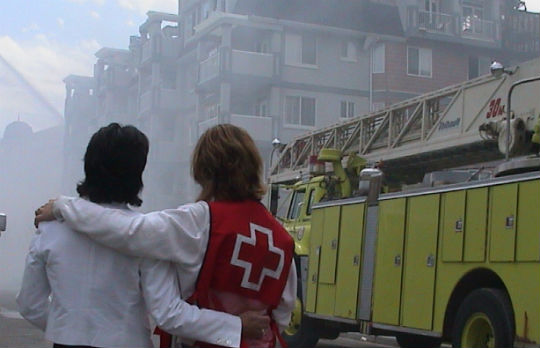Coping With Crisis

Every year millions of people suffer as a result of disasters and emergencies. Any significant loss results in a natural grieving process and all of us are affected by traumatic experiences in different ways.
Following an emergency or disaster, a person may experience a range of thoughts, feelings and behaviour that can be intense, confusing and frightening.
These experiences trigger responses that are both physical and psychological, which are expected reactions to abnormal events, and can include physical, emotional and behavioural reactions such as:
- Sleeping problems
- Headaches
- Muscle tension and bodily pains
- Fast heart beat
- Nausea
- Anxiety
- Watchfulness
- Poor concentration
- Guilt
- Sadness
- Anger
- Confusion
- Having intrusive memories
- Trying to avoid being reminded of the crisis
Some people also react by feeling numb or not feeling anything at all, by struggling with day-to-day decision making, or by isolating themselves from others. Some people increase their intake of alcohol, medicine or drugs to escape the pain they are feeling.
It may help to:
- Maintain daily routines and do things that normally give you pleasure.
- Eat healthy foods, get plenty of sleep and exercise if possible.
- Visit with other people.
- Accept support and assistance.
- Allow yourself to feel sad and grieve.
- Give someone a hug.
- Take small steps.
Children’s Reactions
After a stressful experience, including those involving loss, children’s grief is often abrupt and they may switch quickly from intense grief reactions to play and having fun. Almost all children play, even if they have gone through an intense crisis event.
Younger children may:
- Behave aggressively towards caregivers or other children.
- Cling to their caregivers.
- Show signs of separation anxiety.
- Regress to the behaviour of younger children such as bedwetting, thumb sucking or not being able to sleep alone.
In such situations, stable and secure relationships and establishing predictable routines contribute to a supportive environment.
When to seek help:
The stress reactions may last several weeks. If your reactions persist and make it impossible to function normally over a long period of time, seek help. One option is to contact your local health facility or a local crisis support line.
You may also want to contact:
- Canadian Mental Health Association: For links to support and resources in your area.
- First Nations and Inuit Hope for Wellness Help Line: 1-855-242-3310
- Kids Help Phone - 24-hour bilingual and anonymous phone counselling, online counselling and referral service for children and youth.
- Bell let's talk - Get help page - List of organizations with helpful resources.
Useful Resources:
Guidebook for Wellbeing in Recovery
Coping With Crisis: Common reactions to stress and suggestions on how to cope
Guide to Disaster Recovery for Parents and Caregivers
Preparing for and Coping with Effects of a Disaster or Emergency
Moving Through Recovery: A Guide for Holidays
Slow and Steady in Recovery: Tips for Navigating the One-Year Mark
